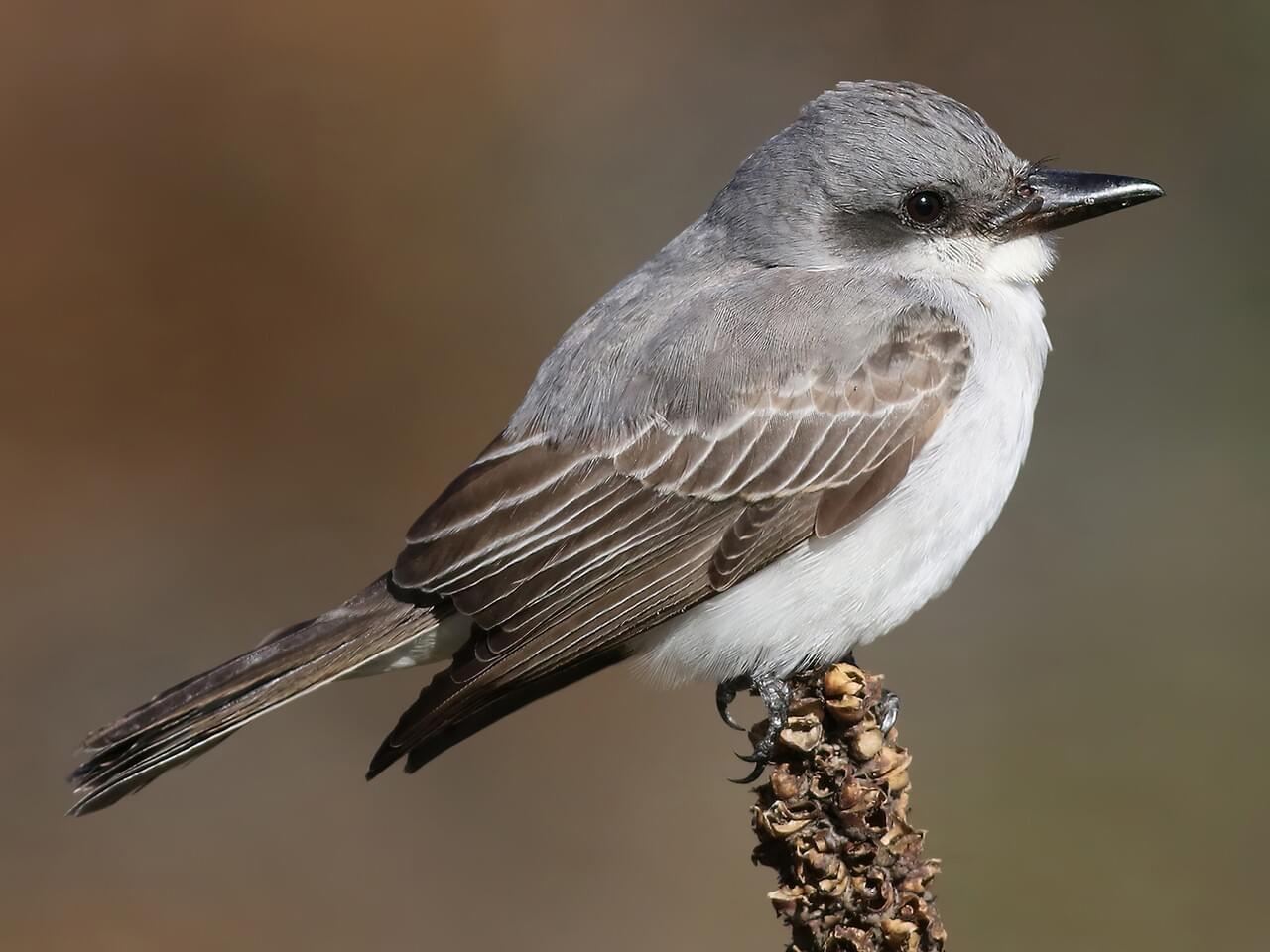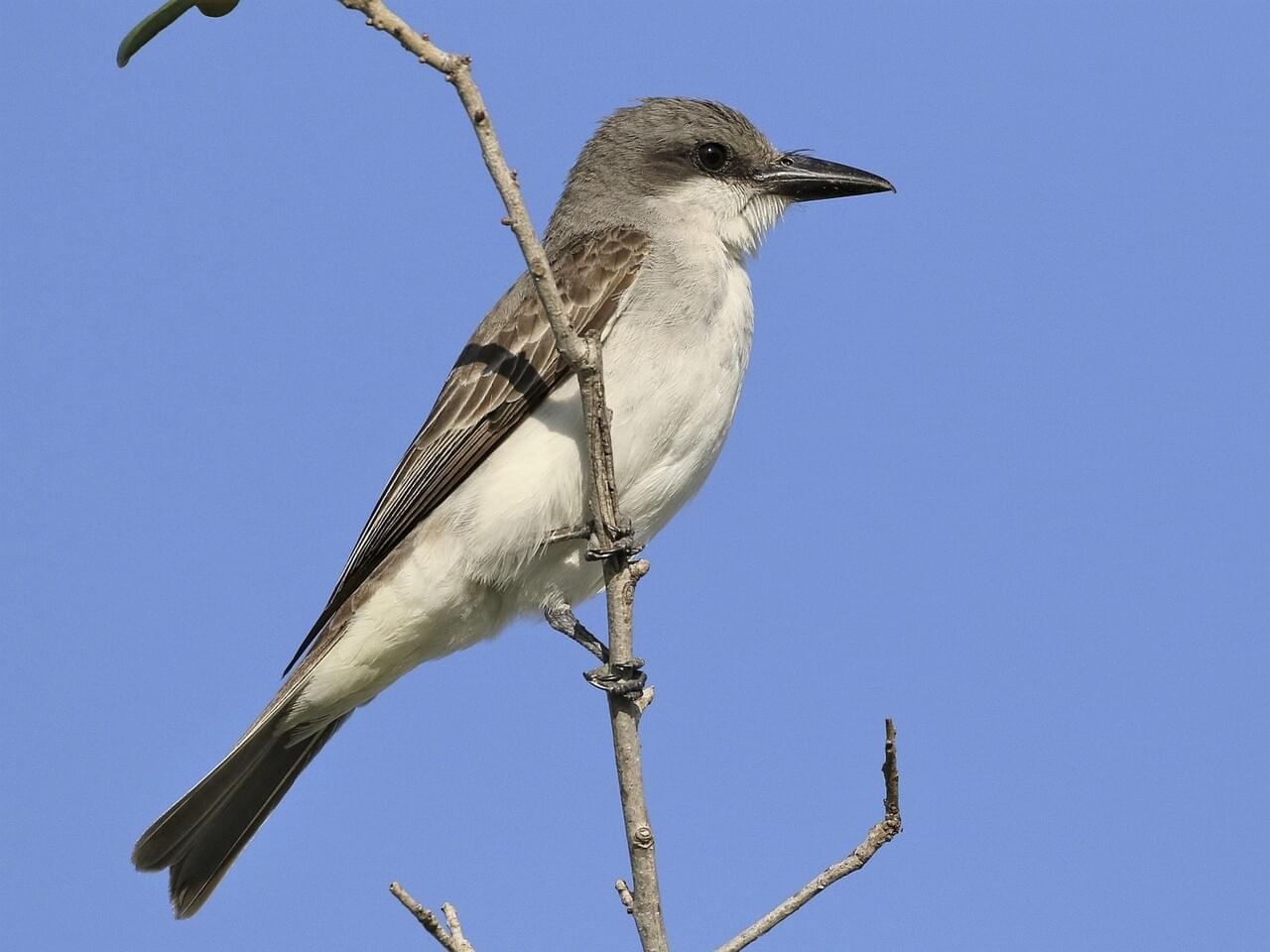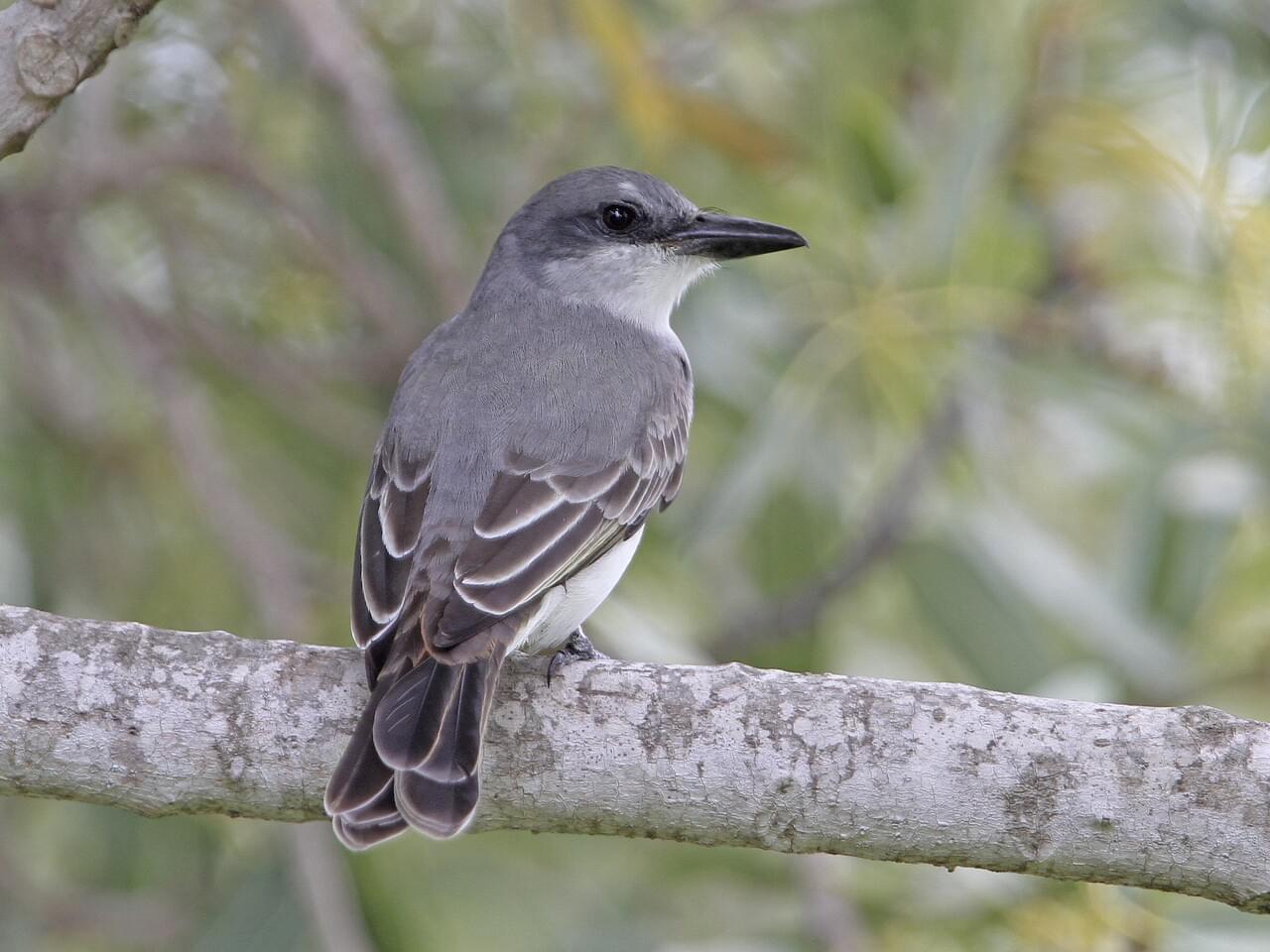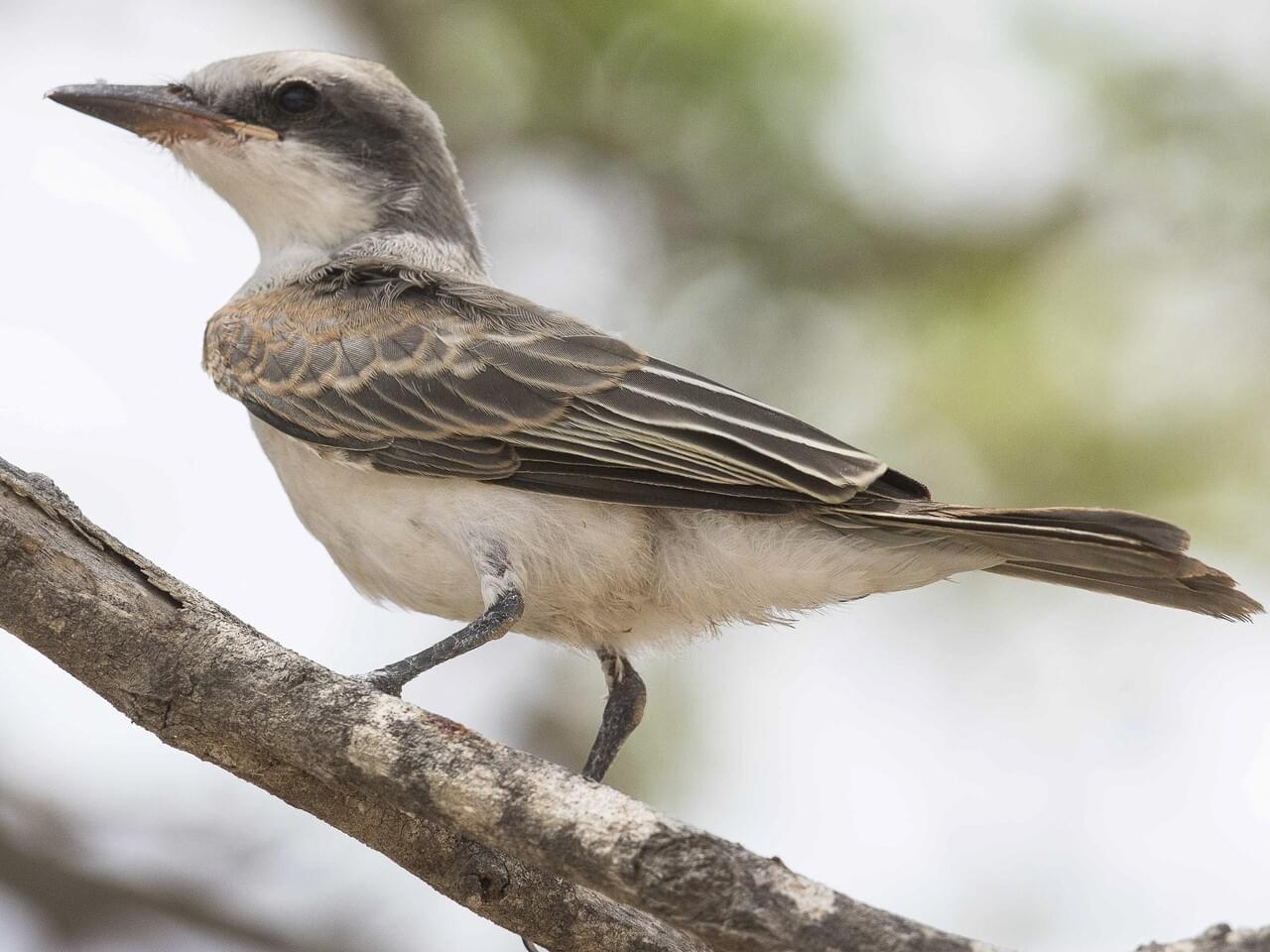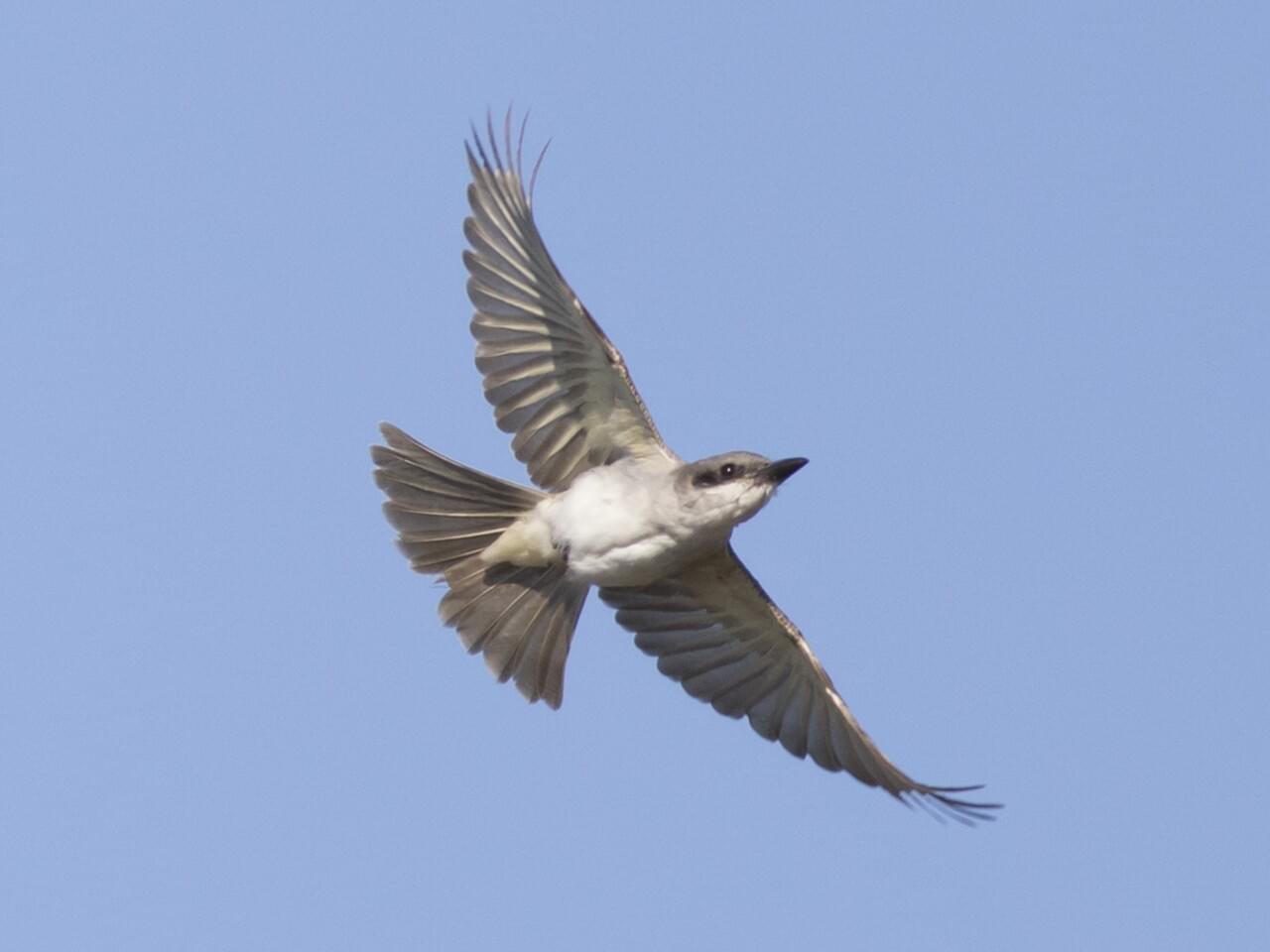 Photo ©
Philippe BOISSEL
Photo ©
Philippe BOISSEL
Gray Kingbird
Regional Species
A large, conspicuous, the Gray Kingbird is at home among the mangrove swamps of south Florida and the Caribbean region. Generally "tame" and tolerant of humans, it is familiar to those of the countryside of West Indian islands, where it is most abundant. It seems to have thrived as native forests have been destroyed, and its petulant voice and feisty disposition have given it almost folk-hero status. Local names derived onomatopoetically from its characteristic call differ from island to island, but rendered in the native tongue impart the same vehemence.
Range
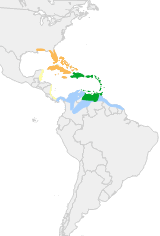
Habitat
Colonizing mainland Florida from the West Indies, the Gray Kingbird remains restricted to coastal and Neotropical climates. In the West Indies, its habitats are open and dry, but generally associated with water, usually coastal. In the United States, it breeds along the Atlantic Coast as far north as Fort Caswell, North Carolina, and along the Gulf Coast to Biloxi, Mississippi. This species is transient along the Caribbean coast from the Yucatán Peninsula of Mexico south to where it winters in the southern Caribbean and northern South America.
Food
Large flying insects including beetles, bees and wasps, and dragonflies; some berries and fruits; and lizards.
Behavior
The Gray Kingbird perches in the open, snapping up flying insects sometimes. He is a strong flier, very quick on the wing; when migrating or flying over distance, wing beats distinctively uneven, beating a number of times, then missing a beat by closing wings. Gray King birds may form large communal roosts with as many as 151 individuals in a roost at one time. During courtship, male and female rise together, crossing each other as they ascend straight up or in a spiral, twittering loudly as they do so; bill-snapping common; usually performed in an open, conspicuous area; they appear to be monogamous.
Nesting
It often builds its crude twig nest near human habitations.
Appearance
Typical Sound
© Robert C. Stein | Macaulay Library
Size and Shape
Large tyrant flycatcher of typical kingbird size and shape. Large bill, thick at base, hooked at tip, bull-headed effect; tail conspicuously notched.
Color Pattern
Gray above, white below, with gray wash on breast; blackish stripe on face running from base of bill to ear coverts; faint whitish wing-bars, wing-covert edgings washed cinnamon; tail slaty, without white edges; some orange or reddish-orange crown feathers, usually visible only in hand; black bill.
Plumage Photos
Similar Species
Distinguished from other kingbirds by combination of thick bill, uniformly gray crown and upperparts, rectrices without white tips, underparts without yellow. Distinguished from Eastern Kingbird by distinctly paler upperparts, much larger bill, heavier body, shorter wings, and longer tail lacking white terminal band. Snowy-throated Kingbird which occurs along Pacific coast of n. South America, smaller with pale-yellow belly and more squared-off tail. In bright light, Tropical Kingbird which occurs from Arizona south through Middle and South America, and Couch's Kingbird which occurs from s. Texas through Central America, can appear more light-breasted and thus similar to Gray Kingbird. More often confused with Loggerhead Shrike than with other kingbirds. Gray Kingbird has larger bill and lacks black wings, black tail, and white markings on wings characteristic of shrikes.
Did you know?!
- The Gray Kingbird may serve as an excellent model of the effects of global climate change on terrestrial fauna. Increased sea levels would almost certainly impact its preferred nesting sites along sea coasts and estuaries, and an increase in the severity and frequency of storm activity would have unknown consequences on nesting success.
